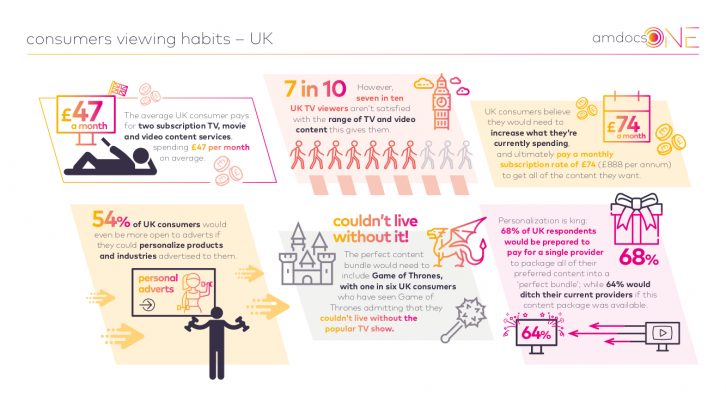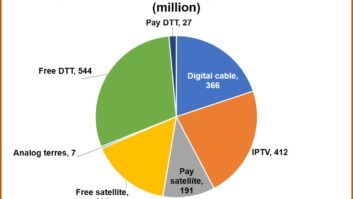New research into the nation’s viewing habits has found 70 per cent of UK viewers are dissatisfied with the range of TV and video content they receive.
The Amdocs study found that UK consumers feel they are not getting enough from their TV and video subscription services, and are demanding more personalised bundles.
Viewers believe they would need to increase their subscription fees from £47 per month to £74 per month in order to access the TV shows, films and live sports they want to watch on a regular basis.
Some 64 per cent said that they would be prepared to ditch their current providers in favour of a ‘perfect content bundle’, as outlined below:
- 85 per cent would include a ‘binge-worthy’ TV series (one in six consumers said they couldn’t live without Game of Thrones)
- 73 per cent would include access to live concerts and events
- 68 per cent would include access to all sports games from one specific team
- 27 per cent would include access to deleted scenes/blooper reels
- 18 per cent would include access to AR and VR enhanced content in films and TV shows
- 54 per cent would be open to receiving more advertising if they could personalise the products and industries advertised to them
Amdocs CMO Gary Miles said: “We are in a golden age of content, with massive investment in original programming and new ways to consume it. But customers are still having to jump between TV applications and content providers to find the programming they want. This is confusing and frustrating.
“Furthermore, the monetisation model varies a lot by service provider, but clearly we are entering an age of three primary models: a) pay per view, b) ad-funded and c) subscription. Helping consumers find their priority content with the right monetisation mix which is simple and transparent will be the winning strategy. For sure, advertisements will help subsidise some of the consumption in many optimal mixes – so the strategy here needs to be fewer adverts, which are more relevant and therefore more valuable to all.”








